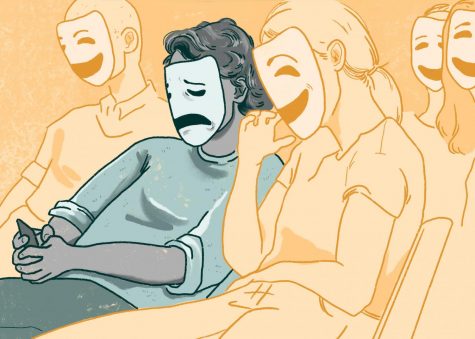OPINION: ‘Sticks and Stones’ may break bones but should comedy be politically correct?
September 10, 2019

Editor’s Note: The term “N-word” is used in this article, referring to the offensive language used by comedian Dave Chapelle. The Chronicle does not condone or promote the use of this term nor the word it refers to; however, the content of the article requires its use for clarity. The Chronicle warns of its use and apologizes for any discomfort the printing of this term may cause.
When Dave Chappelle’s third Netflix comedy special “Sticks and Stones” was released Aug. 26, I set a reminder on my phone, prepared to unwind and laugh.
While there were some laughs and moments of insight from Chappelle’s cynical, unabashed style of comedy, there were also many moments where I checked out.
Throughout the special, Chappelle brought up gun violence, celebrity scandals and the opioid crisis. But there is one subject Chappelle admitted he can’t stop making jokes about—the transgender community. This led me to the question that often surrounds the world of comedy: Do comedians have to be politically correct?
“I don’t want to write these jokes, but I just can’t stop,” Chappelle said during the Netflix special.
Chappelle said he has friends in the LGBTQ+ community, but familiarity with people of a minority group does not allow you to ridicule them or speak on their experiences.
At times, dark comedy can be funny and thought provoking. Dark comedy moves between these two things but also carries the weight of broaching uncomfortable subject matter. When a comedian goes into unfamiliar territory, a line can be crossed. This is a line Chappelle habitually leaps over when joking about transgender people.
Chappelle goes on to compare being transgender with race.
“What if I was Chinese but born in this n—a body?” Chappelle asked the audience in what Netflix captioned as a “Chinese accent.” “And for the rest of my life I had to go around making that face, ‘Hey everybody, I’m Chinese,’ and everyone gets mad.”
What matters is the amount of care that is put into making a joke about a community you are not involved in. There are ways to be comedic while not crossing boundaries.
For example, comedian Patton Oswalt delivered a successfully unoffensive joke about the transgender community in his Netflix special “Talking For Clapping.”
“It’s really hard now because, look, I could not be a more committed, progressive, feminist, pro-gay, pro-transgender person,” Oswalt said. “But I cannot keep up with the f—–g glossary of correct terms, God–n it! I’m trying. I want to help, but holy f–k, they change. … They change it every week … I know I’m an old, cis white motherf—-r, but don’t give me s–t ’cause I didn’t know the right term.”
To this joke, Oswalt’s audience cheered and applauded. But it was Chappelle’s joke that had the crowd erupting with laughter.
Oswalt and Chappelle are different comedians who can only speak to their personal life experiences. While both jokes express the confusion these men have when interacting with people who are different than them, it is Oswalt who remains unoffensive because he did not cross a line. Instead, he makes fun of himself for not knowing politically-correct terms.
In contrast to this, Chappelle’s jokes are not self-reflective or thought provoking.
Chappelle has always been controversial. On “Chappelle’s Show,” he would always tow the line of funny and offensive. But when he makes jokes that are outside of his wheel-house, his sticks and stones become a breaking point for audiences.
One thing I appreciate about comedy is that it is raw when discussing subjects that are sometimes uncomfortable to talk about in other capacities. In a way, the lack of political correctness can be more beneficial and thought-provoking than tip-toeing around taboo topics. Jokes don’t have to be politically correct, but they should be thoughtful and thought provoking.







